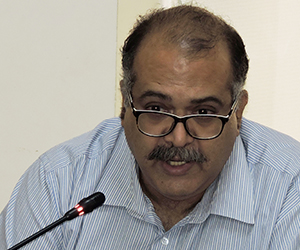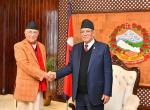Pakistan’s dubious record of not a single Prime Minister completing his full term remains unbroken. A self-perpetuating right-wing, Islamist-oriented judicial mafia in the country has broken new constitutional ground by delivering a coup de grace on a sitting Prime Minister by disqualifying him on the charge of committing contempt of court.
Whether it is as a cause or a result of the steady atrophying of the Pakistani state, the judiciary has emerged as virtually a state within a state, a notoriety it now shares with the Pakistan Army.
From ordering transfers and postings of officials to deciding the price of sugar, and from advising the government on how to maintain law and order to interfering in economic decisions, affairs of political parties, and what have you, the Pakistani judiciary has, for some time now, been playing executive, judiciary and legislature, all rolled into one. Now of course it has even acquired the power to not only break governments (and create an unprecedented constitutional crisis in which a nuclear armed country remains without a government for around four days) but also form governments, especially if the politicians cannot strike a deal on the next Chief Election Commissioner or the next Caretaker Prime Minister.
Notwithstanding the Supreme Court judgment’s sinister and potentially destructive portents for the constitutional scheme in Pakistan, a large part of the blame for the manner in which the government’s, and indeed parliament’s, role has been diminished lies with the political class. Had the incumbent government given a modicum of good and clean governance and retained the support of the people, it is unlikely that the Court’s could have run amok like they have done. But it is equally true that ever since it came into office, the government has lurched from one crisis to another (some the result of its own incompetence and many others the result of being hobbled by an overbearing military, a hostile media and an over-assertive and activist judiciary) leaving it with little time and space for governing effectively.
Given the horrible mess Pakistan is in – a destabilised, fragmented and polarized polity which is being further strained by the tussle for power between institutions of state, a tanking economy, a very precarious security situation, a fraught law and order situation made worse by rising sectarian and ethnic violence, a tense relationship almost on breakpoint with the sole superpower - it is highly unlikely that the new Prime Minister will be able to deliver anything. Not only does Raja Pervez Ashraf face a possible indictment in the alleged scam over sanctioning Rental Power plants (making his continuation in office untenable), he could also face a fate similar to that of his predecessor if he refuses to kowtow to the Supreme Court on the issue of reopening the Swiss money laundering cases against President Asif Zardari. This means that the political crisis in Pakistan could only worsen in the days and weeks ahead.
The big question now is whether or not the Supreme Court will be reckless enough to guillotine a second Prime Minister and continue with this theatre of the absurd. If the Court holds its hand, questions will be raised as to what has happened to its commitment to uphold rule of law; on the other hand, if the Court sacks another PM, then the question will arise whether and for how long the political system can endure such constitutional adventurism. Equally important will be the reaction of the PPP and its allies. If the PPP sheds its pusillanimity (as it must if it doesn't want to see another PM sacked) and forsakes the ‘politics of reconciliation’ (to take on the opposition which is believed to be conspiring with the judiciary), a clash between the government, and perhaps parliament, on one side and the judiciary on the other will become inevitable. In the event this happens, the way will be paved for an extra-constitutional intervention by the Pakistan army which is extremely disquieted by the continuing drift in the affairs of state.
While general elections are being touted as a solution to the logjam, they are unlikely to be a panacea partly because a hung parliament is expected to emerge from the next elections and partly because both the two front-runners i.e. Nawaz Sharif and Imran Khan, spook the army and also the Americans. Not surprisingly, Pakistan is abuzz once again with talk of the infamous ‘Bangladesh model’ – a government of technocrats backed by the army. While in Bangladesh, the judiciary partnered the army in supporting this government, replicating the same in Pakistan will be difficult, more so because of the judiciary’s professed commitment to democracy will tie its hands in backing this ‘caretaker’ government beyond the constitutionally mandated 90 days. But for this government of technocrats to have any realistic chance of setting things right, it will need to be in power for longer than 90 days. At that stage, the army might have to step in to send the judges home and the political circus in Pakistan will have come a full circle.
The problem however is that while the army might be thinking that the mess created by the politicians have given them yet another chance to become 'saviours of the country', things on the ground have gone so bad that it increasingly appears unlikely if even the triumvirate of Army, Allah and America together can pull things back. Compounding the problems for the army is the fact that in order to improve the economy they will have to compromise with the Americans. While this could give some very short term relief on the economic side, politically this is a rather unpalatable proposition given the widespread and deep seated anti-Americanism that is sweeping through Pakistan. If nothing else, any deal with the Americans will tarnish the army's image and there is a high chance that it will pit the army against the Islamist fundamentalist and insurgent groups. In the end, it seems that Pakistan will become an even more fractious country and consequently an even more difficult place to manage.
Published Date: 27th June 2012










Post new comment